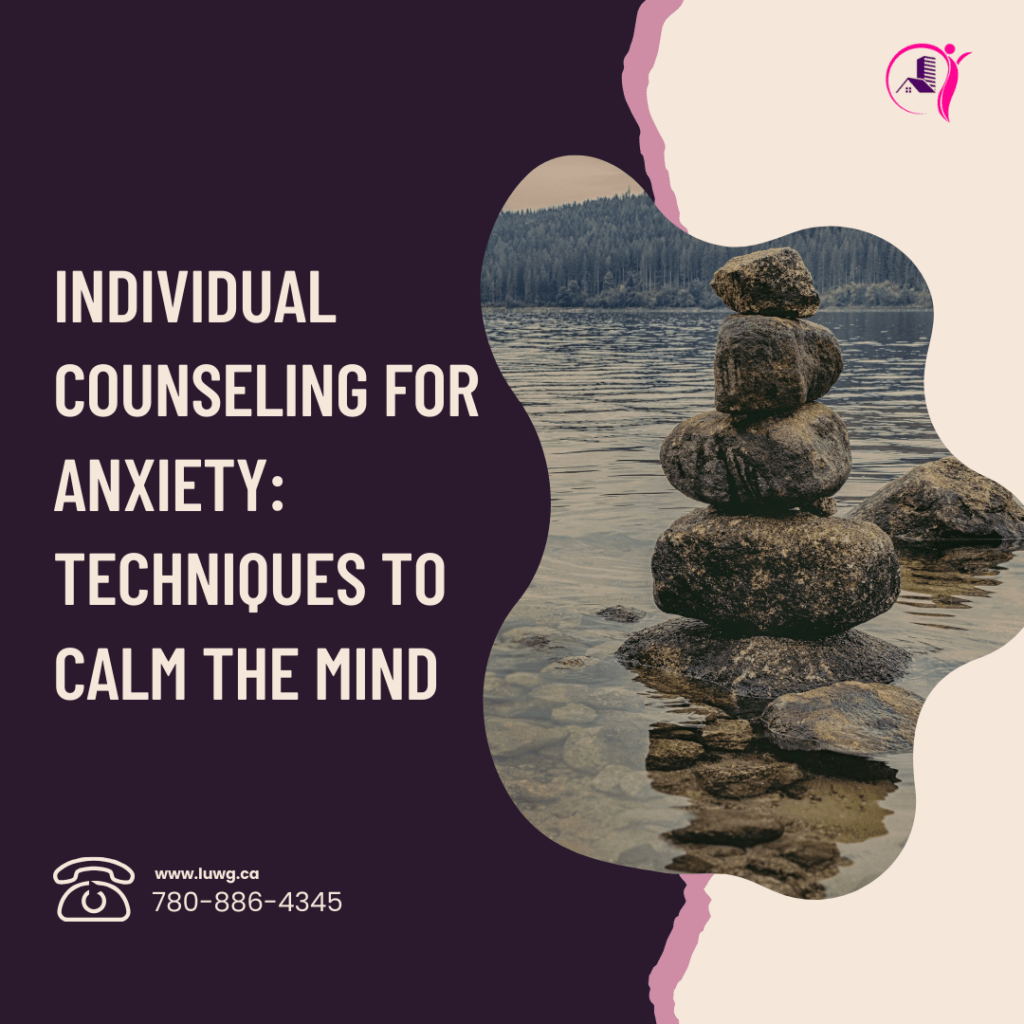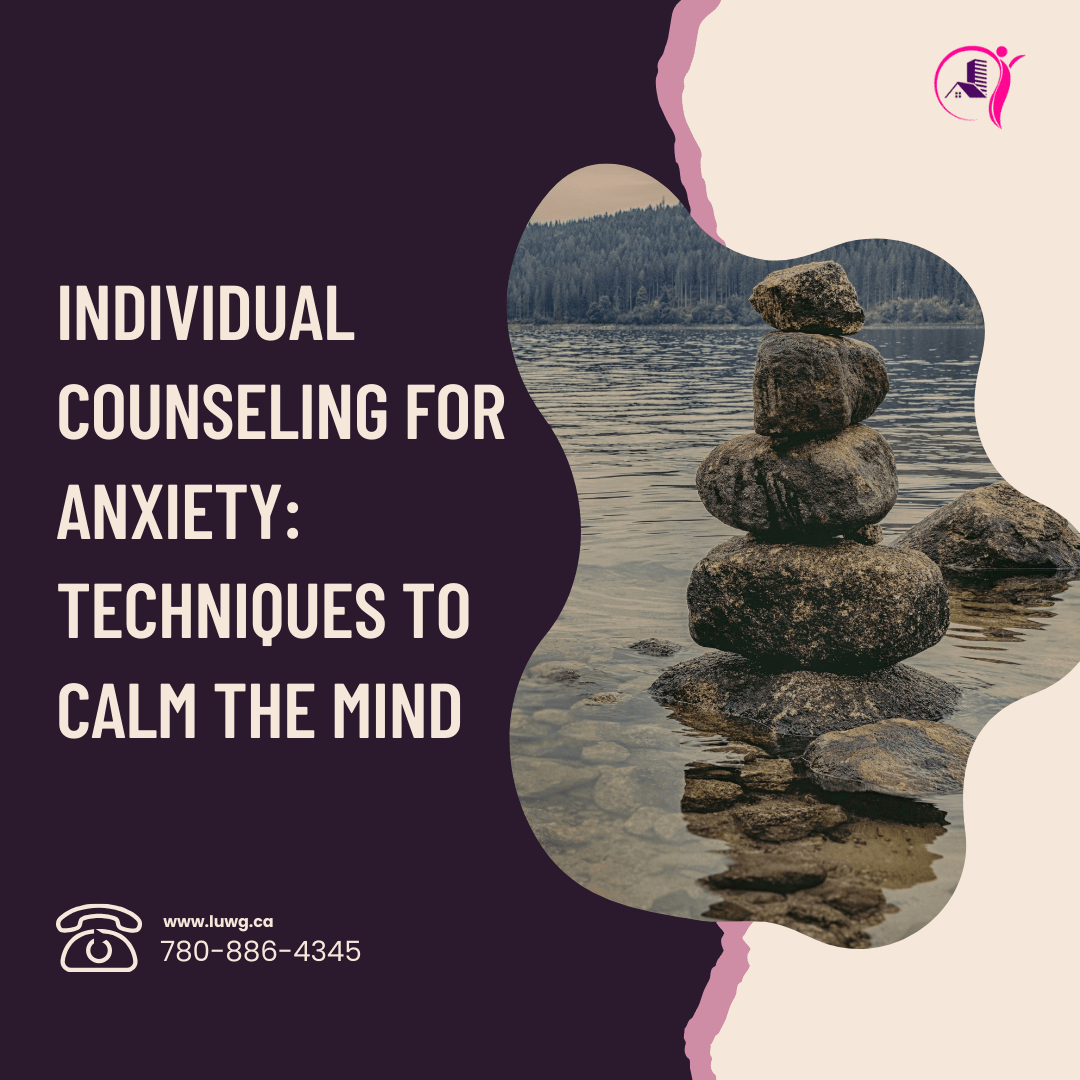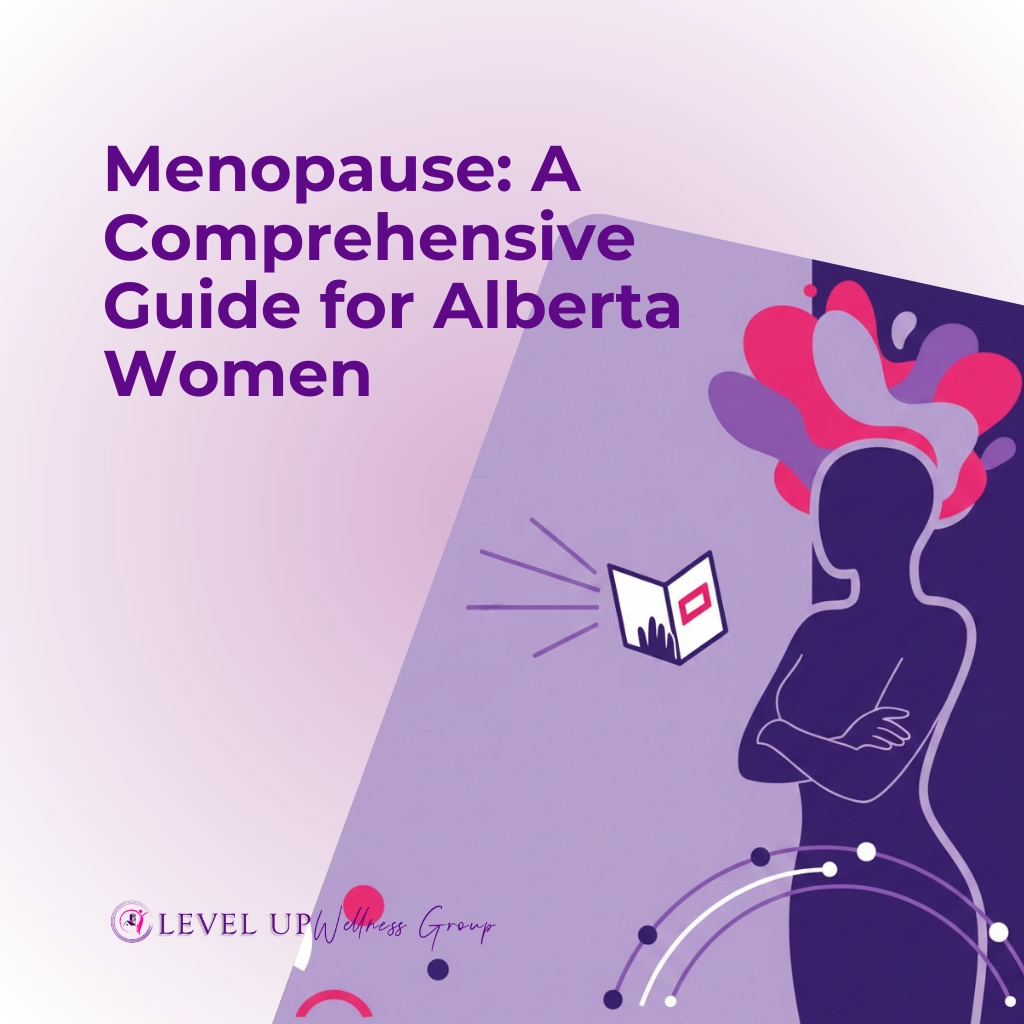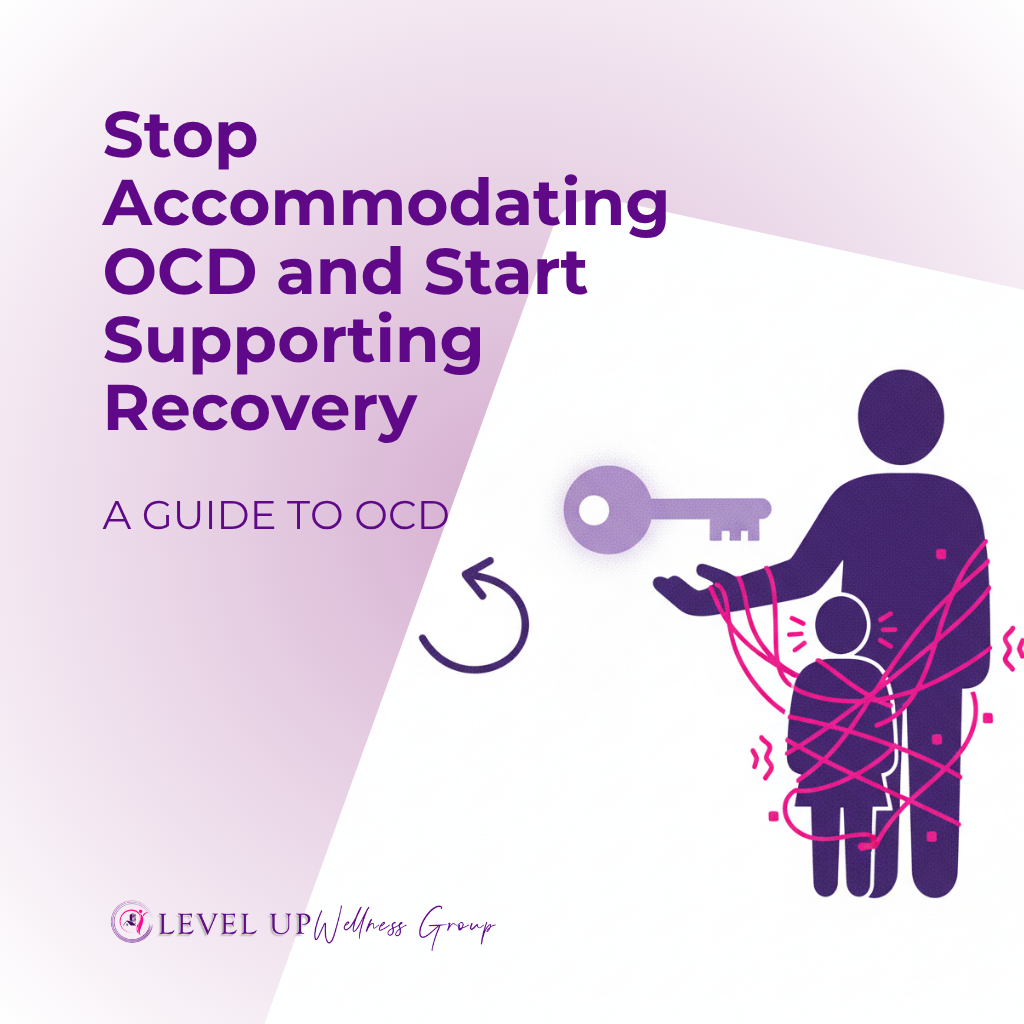
Anxiety is one of the most common mental health challenges affecting millions of people worldwide. It can manifest as excessive worry, racing thoughts, restlessness, and even physical symptoms such as rapid heartbeat, muscle tension, and fatigue. While occasional stress is normal, chronic anxiety can significantly impact daily life, relationships, and work performance.
If you’re struggling with anxiety, individual counseling can provide the tools and support you need to regain control and develop healthier coping strategies. At Level Up Wellness Group (LUWG), we offer personalized therapy sessions designed to help you reduce anxiety, improve emotional regulation, and build resilience.
In this guide, we’ll explore:
- The benefits of individual counseling for anxiety
- Evidence-based techniques to calm the mind
- The role of therapy in long-term anxiety management
- Frequently asked questions about counseling for anxiety
How to start your healing journey with professional support
How Individual Counseling Helps with Anxiety
Anxiety can stem from various factors, including genetics, past trauma, chronic stress, or chemical imbalances in the brain. While self-help strategies can be beneficial, many individuals find that professional counseling provides the structure, guidance, and tools necessary for lasting relief.
Key Benefits of Individual Counseling for Anxiety
1. A Personalized Approach to Anxiety Treatment
Every person experiences anxiety differently, which is why personalized therapy is essential. A licensed therapist will assess your unique triggers, symptoms, and personal history to create a tailored treatment plan that aligns with your needs.
2. Identifying and Changing Negative Thought Patterns
Many individuals with anxiety experience automatic negative thoughts that reinforce feelings of fear and worry. Through Cognitive Behavioral Therapy (CBT), counseling helps reframe these thought patterns, making them less overwhelming and more manageable.
3. Developing Practical Coping Strategies
Therapists teach evidence-based techniques such as mindfulness, grounding exercises, and relaxation methods to help manage anxiety symptoms in real time. These skills empower individuals to reduce anxiety in daily life and build resilience against future stressors.
4. Addressing Underlying Causes of Anxiety
Some individuals struggle with anxiety due to unresolved trauma, past experiences, or ongoing stressors. Therapy provides a safe, confidential space to explore these issues, allowing for emotional healing and self-discovery.
5. Long-Term Anxiety Management and Emotional Resilience
While medication can sometimes provide short-term relief, therapy focuses on long-term anxiety management, ensuring that individuals develop sustainable coping strategies. Counseling encourages self-awareness, emotional regulation, and healthy habits that prevent anxiety from controlling daily life.
Effective Techniques to Calm the Mind
A critical aspect of anxiety therapy is learning practical techniques to calm the mind and regain control over thoughts and emotions. Here are some of the most effective strategies used in individual counseling:
1. Cognitive Behavioral Therapy (CBT) for Anxiety Relief
CBT is one of the most widely used and researched forms of therapy for anxiety. It helps individuals:
- Identify cognitive distortions that contribute to excessive worry
- Challenge irrational fears with rational thinking techniques
- Replace negative thought patterns with healthier perspectives
- Learn problem-solving strategies to navigate stress effectively
By working with a therapist trained in CBT, individuals gain a structured approach to managing anxiety that leads to long-term improvement.


2. Mindfulness and Meditation for Stress Reduction
Mindfulness-based therapy has been shown to significantly reduce anxiety levels by teaching individuals to focus on the present moment instead of worrying about the past or future.
Common mindfulness techniques include:
- Deep breathing exercises to activate the body’s relaxation response
- Guided meditation to enhance focus and emotional stability
- Body scanning techniques to identify and release tension
- Journaling and self-reflection to process anxious thoughts
3. Exposure Therapy for Facing Fears Gradually
Avoiding anxiety triggers often reinforces fear. Exposure therapy helps individuals gradually face their fears in a controlled and supportive environment, allowing them to build confidence and reduce avoidance behaviors.
This technique is particularly effective for social anxiety, phobias, and panic disorders.


4. Grounding Techniques for Immediate Anxiety Relief
Grounding exercises help shift focus away from overwhelming thoughts and back to the present moment. Some of the most effective grounding techniques include:
- The 5-4-3-2-1 Method: Identify five things you see, four things you feel, three things you hear, two things you smell, and one thing you taste.
- Holding a physical object: Engaging with a textured object (like a stress ball or piece of fabric) can create a calming effect.
Engaging in sensory experiences: Splashing cold water on your face, listening to calming music, or inhaling a soothing scent can help interrupt anxious thought patterns.
5. Lifestyle Changes to Support Mental Well-Being
Daily habits play a significant role in anxiety management. In counseling, therapists often recommend:
- Regular exercise to boost endorphins and reduce stress hormones
- Healthy eating to maintain balanced blood sugar and brain function
- Quality sleep to support emotional regulation and cognitive function
- Reducing caffeine and alcohol intake, as these can contribute to anxiety symptoms
When combined with therapy, lifestyle changes enhance overall well-being and improve mental health over time.

FAQs
1. How do I know if individual counseling is right for me?
If anxiety is affecting your daily life, relationships, or ability to function, counseling can provide the support and tools needed to regain control. Therapy is beneficial for individuals experiencing:
- Persistent worry and fear
- Difficulty sleeping due to anxious thoughts
- Panic attacks or overwhelming stress
- Avoidance of certain situations due to fear
2. How long does it take to see results from therapy?
The timeline varies depending on the individual and the severity of anxiety. Some people experience improvement within a few sessions, while others may require longer-term support. Consistency and engagement in therapy sessions and coping strategies play a key role in progress.
3. Is counseling confidential?
Yes. All therapy sessions are confidential, providing a safe and private space to discuss concerns without judgment.
4. Can therapy help me reduce my reliance on medication?
For some individuals, therapy alone is enough to effectively manage anxiety. Others may benefit from a combination of therapy and medication, which should always be discussed with a healthcare professional.
5. How do I get started with individual counseling at LUWG?
Starting therapy is simple. Level Up Wellness Group (LUWG) offers compassionate, expert-led counseling to help individuals manage anxiety effectively.
Take Control of Your Anxiety
You don’t have to face anxiety alone. At Level Up Wellness Group, we provide expert individual counseling designed to help you develop practical coping strategies, reduce stress, and regain confidence in daily life.





